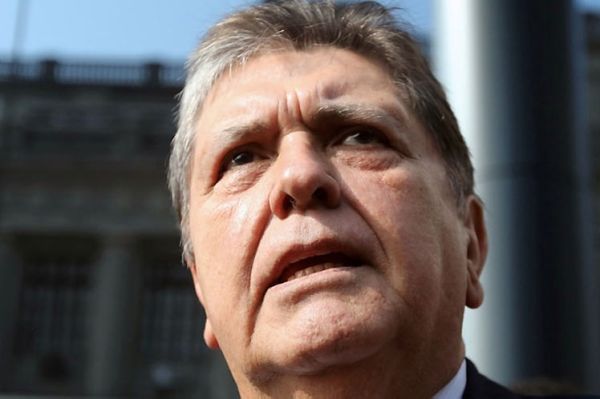
Former Peruvian President Alan García ended tragically his life, committing suicide with a shot in the head, putting an end to a long and controversial career in which he twice ruled his country and was marked by the stigma of corruption.
García decided to end his life so as not to be arrested by an anti-corruption judge who contradicted the routine of decades of embezzlement allegations, from which he always left unscathed or, as his detractors say, unpunished.
Born on May 23, 1949, his father was a member of the Aprista Party and an anti-dictatorial fighter- Garcia met him when he was five years old, when he was born his father was in jail-and his mother, a humble teacher, belonged to the same party.
He joined APRA youth when he was 17 years old, where he climbed positions to join the exclusive group of young people who alternated with the head of the party, Víctor Raúl Haya de la Torre, and after studying at the Catholic and San Marcos universities, he traveled to Europe, and on his return he returned to the old party.
In 1978 he was elected member of the constituent assembly as a way out to a long military government, and in 1980, being secretary of organization for aprismo, he promoted the presidential candidacy of Armando Villanueva, who was defeated by the center-right Fernando Belaúnde.
That year he was elected deputy and laid the foundations of his election campaign, with flags of renewal, return to the old flags of reform aprismo and fight against internal corruption, getting elected for the first time president in 1985.
In 1990 his administration ended in the midst of general condemnation, by an administration characterized by its inflammatory reformist verb and by a great economic chaos of hyperinflation and incessant devaluation.
That government left denunciations never judged by corruption and by massacres and other attacks against human rights, in the framework of the so-called internal war, which are still pending to be played.
Although various evidences indicate he helped his successor, Alberto Fujimori, to be elected in 1990, in 1992, when Fujimori closed the parliament and governed hand in hand with the military, Garcia’s house was raided and he sought asylum in Colombia.
He only returned to Peru in 2001, after the supreme court declared the crimes that were imputed to him for big cases of corruption registered in his five-year term of office.
After his return, he tried to return to the presidency in the elections of the same year, but was defeated by neoliberal Alejandro Toledo. In 2006, he achieved his goal with neoliberal and anti-communist flags, on the nationalist Ollanta Humala.
At the end of his last government, in 2011, he again left a trail of denunciations for acts of corruption, such as the pardons of thousands of people convicted of drug trafficking, but García’s lawyers managed to judicially invalidate the results of a parliamentary investigation into that administration.
Although he announced his retirement from politics to dedicate himself to writing and teaching, García tried again to be reelected in 2016, at the head of a neoliberal and conservative alliance, but he suffered a severe setback, obtaining less than six percent of the votes.
This result was repeated in the polls, since then, with slight variations, along with the growing perception of García as the ex-ruler and the most corrupt politician in the country, which he and his followers considered the product of a campaign of hatred and discredit.
He repeatedly tried to regain his status as a politician, to attribute the accusations against him as a result of that animosity, with more intensity after the prosecution found new signs of corruption in his last government.
Based in Spain, in November 2018 he returned for a few days to testify at a hearing on the prosecutor’s investigation, but Judge Richard Concepción Carhuancho ordered that he not leave the country for 18 months.
That same day, after declaring his compliance with the judge’s decision, he entered the home of the Uruguayan ambassador in Lima and requested asylum alleging persecution, which was rejected by that government.
The investigations continued until the Brazilian company Odebrecht confessed to the public prosecutor of Peru that he had paid bribes for more than four million dollars to the ex-secretary of García, Luis Nava, to his son, and to another close friend, Miguel Atala.
The closeness of those appointed to Garcia and their lack of capacity to benefit Odebrecht made the prosecution consider that García was the final recipient of the bribes and, therefore, request and obtain the arrest warrant, which the judge was going to accept.
Police agents entered his homwe on Wednesday, only to hear a gunshot and finding a dying ex-president. President Viscarra declared today a day of mourning.
 Escambray ENGLISH EDITION
Escambray ENGLISH EDITION





Escambray reserves the right to publish comments.